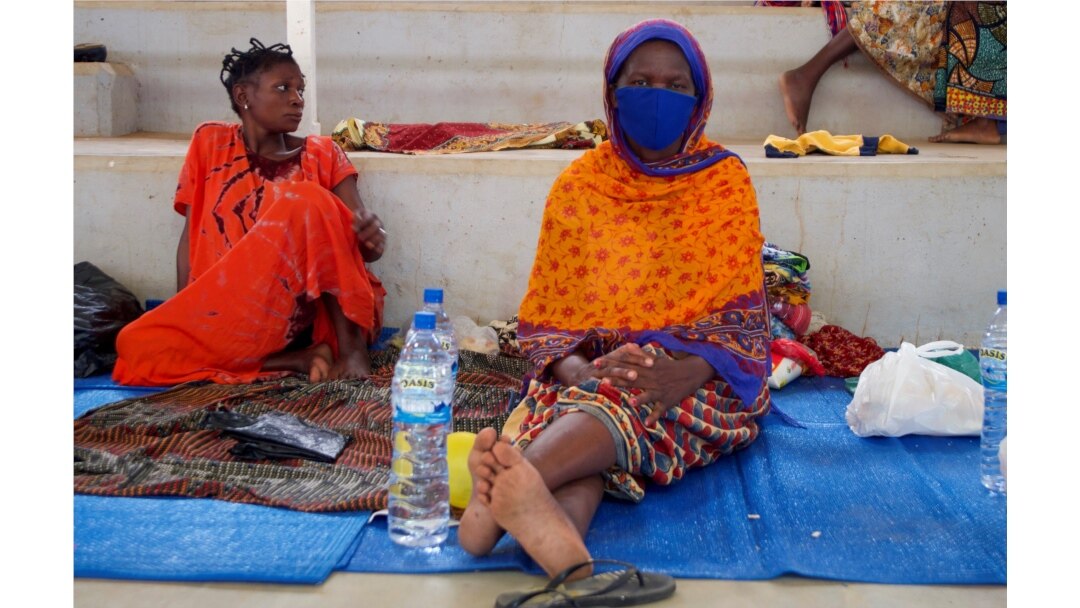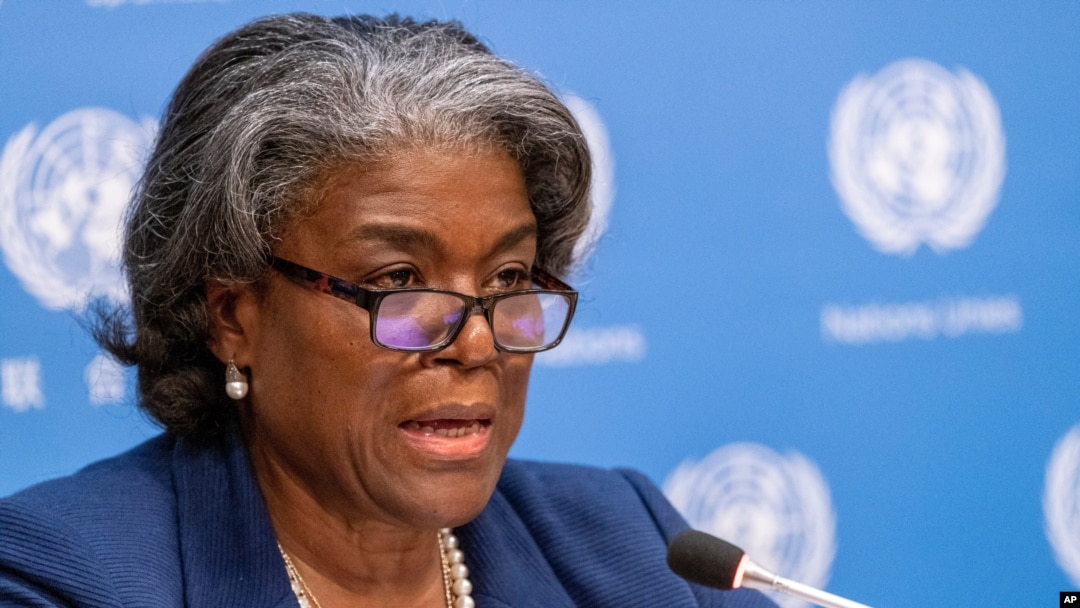U.N. Ambassador Linda Thomas-Greenfield, a longtime Africa specialist, laid out the Biden administration’s policies on Africa ahead of a U.N. Security Council meeting Wednesday on the topic.
She also noted she is working behind the scenes with African nations on the Security Council to address the current conflict between Israel and the Palestinian militant group Hamas.
Thomas-Greenfield, who forged her diplomatic career in Africa, said she doesn’t see the continent as a challenge but as a home away from home.

FILE - Displaced women sit on mats after fleeing an attack claimed by Islamic State-linked insurgents on the town of Palma, at a displacement center in Pemba, Mozambique, April 2, 2021.
That’s the attitude she plans to take into the council meeting about the challenges facing the vast region, which include violent insurgencies in places like Mozambique and the Sahel, conflict in Ethiopia, economic destruction from the pandemic and more.
“We're committed to being a partner to Africa as you confront these threats and these challenges,” she told journalists by teleconference on Tuesday. “And we believe that the best and the strongest partnerships are built on a foundation of trust and transparency and accountability, and areas of mutual opportunity.”
Such warm words are a departure from what Thomas-Greenfield acknowledged were a frosty four years between the Trump administration and the continent. The career diplomat has represented the United States in Kenya, Gambia, Nigeria and Liberia, and as former President Barack Obama’s assistant secretary of state for African affairs.
Now, as representative to the U.N., she is bringing the Biden administration’s Africa policy to the global stage during Wednesday’s meeting.
Thomas-Greenfield acknowledged that handling the various issues in Africa is not the work of one meeting, or even one country, and she singled out China as another country with vast outreach to Africa.
“The United States can't do it alone,” she said. “We have to do it in consultation and support of the African people, and we do it for the African people. I would say that it worries me, as I look at Africa's relationship with China, for example, that that is a relationship that sometimes rests on coerciveness, indebtedness, and not in partnership. And I want our message to be completely the opposite of that.”
An Israeli fire and rescue personnel member works at the scene where a rocket launched from the Gaza Strip landed, causing fatalities, on a farm just over the Gaza border, in Moshav Ohad, southern Israel May 18, 2021.
VOA asked the ambassador about rising hostilities between Israel and Hamas. Ten of the 22 members of the Arab League are African states, and that body has harshly criticized Israel’s recent military actions in Gaza. The U.S. blocked a U.N. Security Council statement calling for a cease-fire amid the violence, with U.S. officials saying they prefer “quiet, intensive diplomacy” to solve the problem.
Thomas-Greenfield said the administration is pushing for a peaceful solution on multiple fronts, including from her side.
”We are engaging with Africans on this issue, both at the Security Council and across the board,” she said. “We have taken intense diplomatic efforts to try to find a solution to this situation from the most senior levels of the United States, as you've seen in the press. President Biden has engaged several times with (Prime Minister) Netanyahu. Secretary Blinken has engaged with government officials. And I have engaged with the governments, as well as other parties here in New York, to push for a solution. And again, that includes members from Africa.”
The 15-member Security Council, which currently contains Kenya, Niger and Tunisia as nonpermanent members, meets Wednesday.


